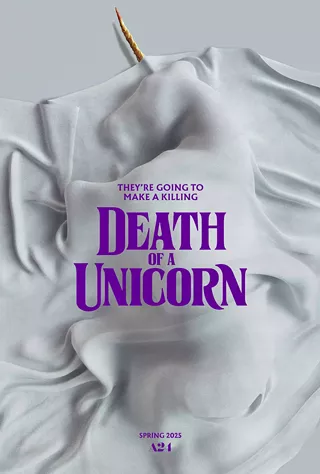Back in the late '80s, if you paid money to see a Corey Haim/Corey Feldman movie, you were probably interested in watching a dopey teen comedy. And if you went to see a film starring Jason Robards which focused on the romantic and religious life of an elderly man, you were probably not the audience for a Corey Haim/Corey Feldman movie.
Yet the 1989 Haim/Feldman/Robards film Dream a Little Dream inexplicably tried to combine these audiences into some sort of otherworldly chimera. The story is about the mushy love that Robards feels for his wife. It's also about obnoxious teens who trample his garden. And then, in one of the most inexplicable moves of 20th-century cinema, Robards' meditation technique causes his spirit to enter the body of Feldman, who must play the Robards part for the remainder of the film. Also, and importantly, Dream a Little Dream is not a comedy: It's a dramatic film that relies on Feldman's acting ability. The teens who went to see it were confronted with a romance between two senior citizens, and the senior citizens who went to see it were faced with looking at Corey Feldman. There's so much in that movie designed to alienate audiences that I wonder if it was the result of a drunken dare or a lost bet.
I get a similar feeling with Bronson, which is very loosely based on the life of the most violent criminal in the English prison system. Born Michael Gordon Peterson, he changed his name to Charles Bronson to reflect his brutal nature, which has led him to spend 30 of the last 34 years in solitary confinement.
Knowing that there's an audience of action-loving young men who'll pay to see violence and bloodshed, director Nicolas Winding Refn loaded his movie up with fighting, Dada-esque mime sequences and full frontal male nudity. Because: Huh?
I'm hoping fans of The Transporter, Snatch and Crank will go see it in small groups, and then afterward feel very uncomfortable and try to accuse each other of being gay. And while I think that making action-movie fans uncomfortable about their sexuality is a worthy goal, I'm afraid that Bronson just doesn't succeed in enough other areas to really warrant our support.
While it's ostensibly based on a true story, it deviates so far from the specifics of that story that it's perhaps best described as being "inspired by" a true story. I'm a big fan of that tag, since it can apply from any set of facts to any work of art. For example, Moby Dick was inspired by a really awesome dump that Herman Melville once took, and the second Gulf War was inspired by oil and revenge.
The film is oddly structured; though it runs through Bronson's life chronologically, it frequently breaks from the narrative for a series of scenes shot in a large theater, where Tom Hardy, as Bronson, stands before an appearing-and-disappearing audience in whiteface; sometimes, half of his head is made up to look feminine. He also narrates much of the film in voiceover, describing his desire to be famous. Strangely, he thinks the path to the fulfillment of this desire is to be found in hostage-taking, brutality and the frequent display of his penis.
I'm sure these are all worthy pursuits, and a life dedicated to them might well make an interesting topic for cinema. But director Refn is much more interested in being arty than in telling a tale—which would be fine if Refn were more thoughtful, but the obviousness of having Bronson stand before an imaginary audience to express his desire for fame is indicative of most of Refn's ideas. In one of the later sequences, for example, Bronson paints the face of one of his hostages and poses the man as a sort of living sculpture, as though Refn were saying, "Look, hostage-taking is Bronson's art form." Except it's not so much as if he were saying that, but more like he's shouting it in pidgin English while drawing a diagram to explain it and lighting enormous signal fires to guide the slow-witted to the meaning of his metaphor.
So, in spite of the violence and penises, Bronson is not quite the art film it wishes to be. Nor is it the lad-movie that fans of beating and blood will be looking for. But I appreciate Refn's efforts in trying, and failing, to hybridize these genres. It reminds me of my own work in creating a cuddly teddy bear that, when its tummy is rubbed, speaks to the young child holding it, saying, "Your parents are fleshy things that will one day corrode and rot. And you, too, are a fleshy thing that will one day corrode and rot. I wuv you! I wuv you! I wuv you!"










